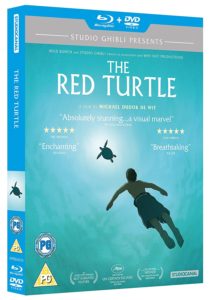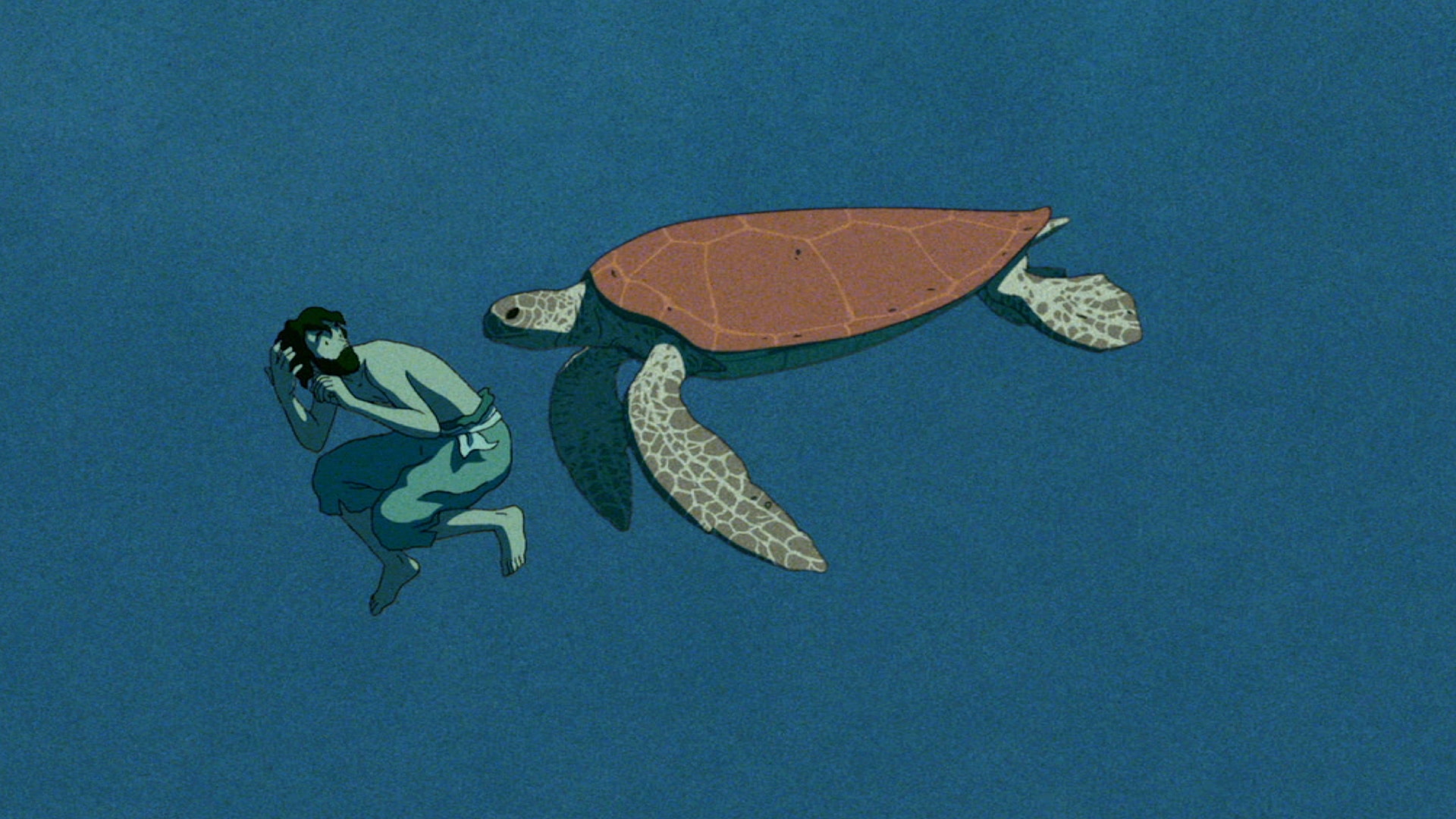Reader advisory: this review contains spoilers. If in doubt, do not read beyond the warning midway.
The Red Turtle is a milestone in the history of Studio Ghibli, Japan’s most famous animation studio, in that it marks their first international co-production. Helming The Red Turtle is Dutch director Michael Dudok de Wit, a name I was previously unfamiliar with. Looking up his other work, it’s clear there’s obvious precedent to the rather timeless themes of The Red Turtle in his Oscar-nominated short film, Father and Daughter. While there’s no denying the hugely impressive animation work of The Red Turtle, and the near-universal appeal of its almost parable-like narrative, there was something just that little bit not quite right about the film to completely, truly captivate me.
A man is near-drowning in a storm, and washes up on the shore of a deserted island. He finds creatures and sustenance but resolves to try to make his way home. His attempts are thwarted by a giant turtle that keeps breaking his raft. The man lashes out in anger at the turtle, frustrated that he’s trapped. Later, a woman emerges from the sea. The couple lives out their lives on the island, through good times and bad, growing old together.
 While I’m not entirely sure I found The Red Turtle to be wholly satisfying experience, there’s no denying the absolutely stunning beauty of its animation. The opening sequence is really arresting, the enormity of the sea raging around the tiny body of the man is quite riveting and effective. On the island itself, the richness of the environment is rendered believable without ever becoming reliant on photo-realism. The humans are animated very simply, and it’s phenomenal to see the depth of emotion expressed in such simple character design, particularly as the film is dialogue-free and completely reliant on the strength of its animation to get the audience on-side. Assisting this is a very sweet score from French composer Laurent Perez del Mar.
While I’m not entirely sure I found The Red Turtle to be wholly satisfying experience, there’s no denying the absolutely stunning beauty of its animation. The opening sequence is really arresting, the enormity of the sea raging around the tiny body of the man is quite riveting and effective. On the island itself, the richness of the environment is rendered believable without ever becoming reliant on photo-realism. The humans are animated very simply, and it’s phenomenal to see the depth of emotion expressed in such simple character design, particularly as the film is dialogue-free and completely reliant on the strength of its animation to get the audience on-side. Assisting this is a very sweet score from French composer Laurent Perez del Mar.
So why, then, did this beautifully-realised, seemingly universal story leave me cold? It’s hard to explain without detailing too much of the plot, but, in short, my own take on how the narrative played out relied a little too much on the exploitation of both nature and the feminine in order to tell its ‘universal’ story of a – default male – human. Now, I am well aware that this stems from my interpretation of the film. This is not by any means necessarily there in the film, but, just as so many others seem to have been totally enamoured by it, I can’t deny my own response. So, with a warning for spoilers – here’s what I saw in the story that left me confused and uncomfortable. The man is enraged by the turtle, and strikes out at it – seemingly killing it. The suggestion is that the turtle reincarnates as the woman. The man and the woman live their lives together, having a child, growing old, and eventually succumbing to time – when the woman returns to the sea as a turtle.
Now, forgive me if I’m being a bit too SJW here, but I just can’t find myself won over by a narrative which sees a man’s journey to not being a short-sighted, self-preserving destructive force requiring a woman who he has essentially just quite cruelly killed to hold his hand and teach him how not to be horrible. The only satisfying interpretation of what I watched was that nature in fact confined him to the island by providing the companionship of the woman, but honestly that just doesn’t fly in the context of the film. It could be I’m missing some subtlety or metaphor in the narrative. It could be that I got too hung up on the man’s cruelty early on to adequately read the rest of it. Perhaps it says more about me that the manner of the man’s forgiveness and rehabilitation over-shadows the essential kindness of nature as depicted in the film.
Despite my relative discomfort with the film’s narrative, I would still absolutely recommend The Red Turtle. It’s a visual feast, and it is an effective story, taken at face value. Taken more deeply, it’s certainly going to make you ponder, positively or negatively, the nature of humanity and the potential humanity of nature.
The Red Turtle is available now on DVD and Blu-ray from Studiocanal.
